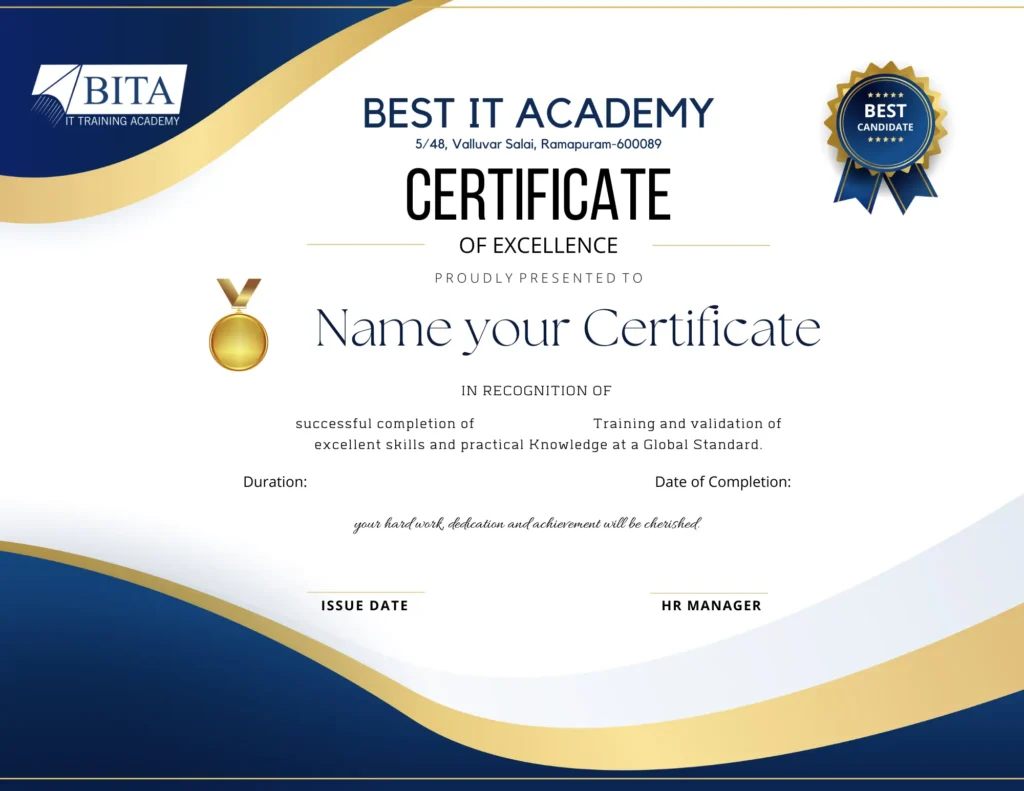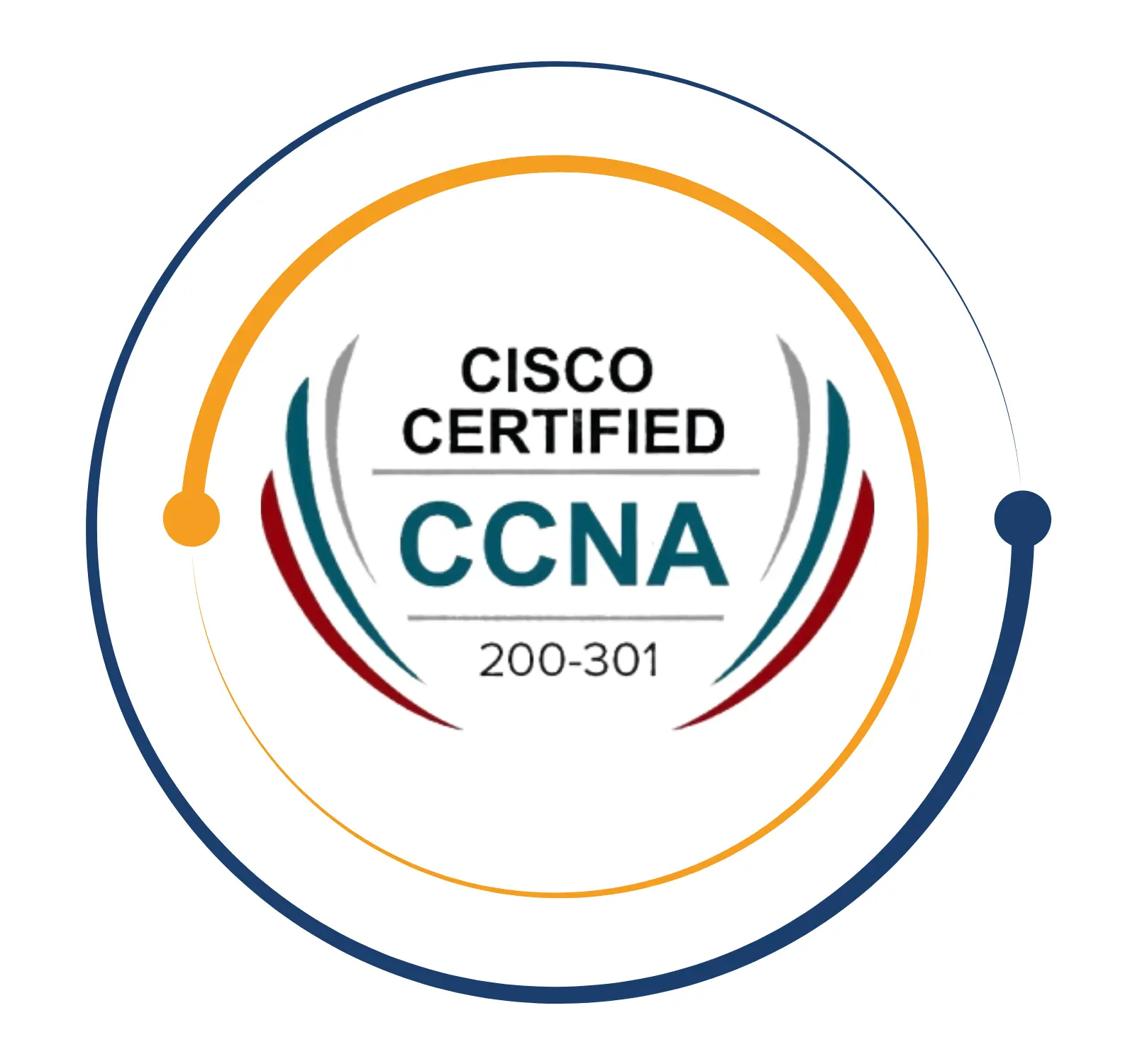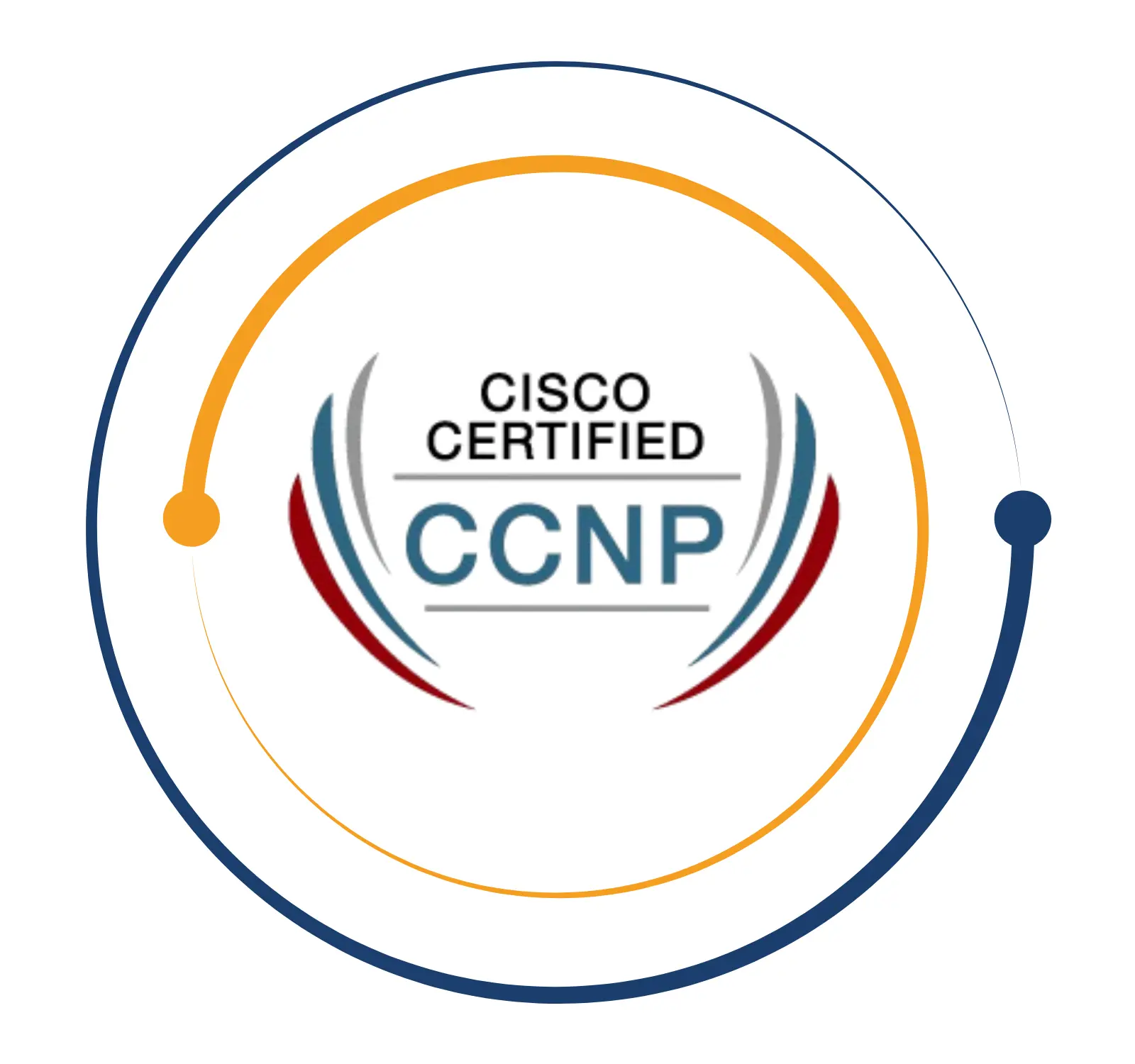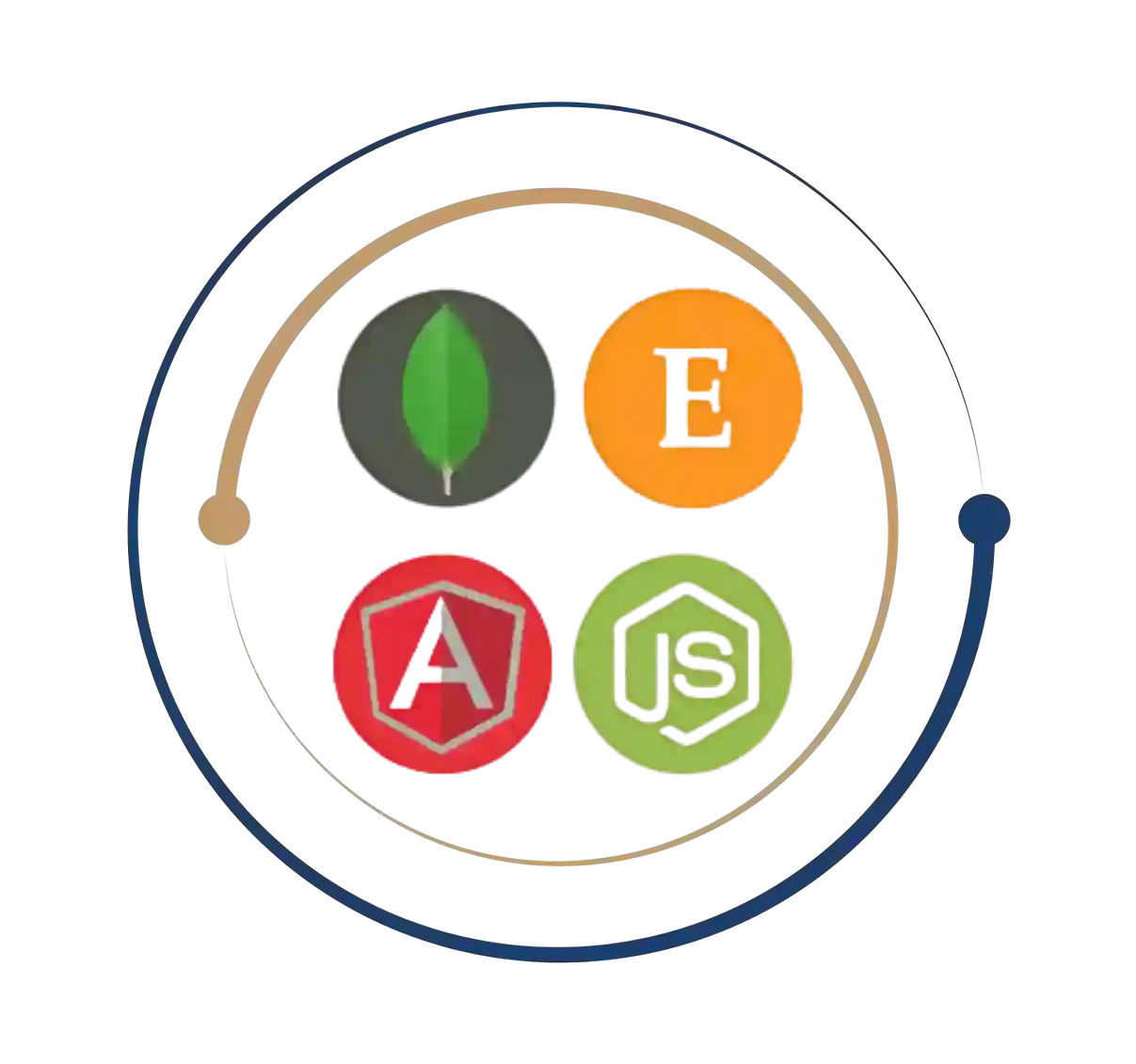Master the art of database management with expert SQL training
SQL Training in Chennai
Are you looking for a platform where you can learn about SQL from the ground up? BITA offers SQL Training in Chennai, which teaches you how to master the architecture of the SQL Database and how to create, login, insert, delete, store, and restore functions from large datasets like an expert under the supervision of industry Database Experts. Our tutor will assist you in acquiring the fundamental concepts of Structured Query Language (SQL), such as queries, unions, stored procedures, database administrators, and more.
What is SQL?
SQL is an abbreviation for Structured Query Language, and SQL allows you to connect to and manipulate databases. SQL was adopted as an American National Standards Institute (ANSI) standard in 1986 and an International Organization for Standardization standard in 1987.
What is SQL capable of?
- SQL can run queries against databases.
- SQL can retrieve information from a database.
- SQL can insert data into a database.
- SQL can be used to update database records.
- SQL can delete records from a database.
- SQL can create new databases.
- SQL can add new tables to a database.
- SQL can be used to create stored procedures in a database.
- SQL can generate database views.
- SQL can grant access to tables, policies, and ideas.
Roles and Responsibilities of SQL Developer
- SQL Developers must design, build, and maintain databases.
- Create efficient database structures.
- Create optimized queries, views, and triggers for use in other applications.
- Maintain data integrity and security.
- Understand network performance and security issues.
- Creating database structures and tables, Views, functions, and stored procedures.
- Building SQL queries that are improved for integration with other applications
- Making database triggers for automation.
- Monitoring database security and maintaining data quality
SQL Training in Chennai
Are you looking for a platform where you can learn about SQL from the ground up? BITA offers SQL Training in Chennai, which teaches you how to master the architecture of the SQL Database and how to create, login, insert, delete, store, and restore functions from large datasets like an expert under the supervision of industry Database Experts. Our tutor will assist you in acquiring the fundamental concepts of Structured Query Language (SQL), such as queries, unions, stored procedures, database administrators, and more.
SQL is an abbreviation for Structured Query Language, and SQL allows you to connect to and manipulate databases. SQL was adopted as an American National Standards Institute (ANSI) standard in 1986 and an International Organization for Standardization standard in 1987.
What is SQL capable of?
- SQL can run queries against databases.
- SQL can retrieve information from a database.
- SQL can insert data into a database.
- SQL can be used to update database records.
- SQL can delete records from a database.
- SQL can create new databases.
- SQL can add new tables to a database.
- SQL can be used to create stored procedures in a database.
- SQL can generate database views.
- SQL can grant access to tables, policies, and ideas.
SQL is an abbreviation for Structured Query Language, and SQL allows you to connect to and manipulate databases. SQL was adopted as an American National Standards Institute (ANSI) standard in 1986 and an International Organization for Standardization standard in 1987.
What is SQL capable of?
- SQL can run queries against databases.
- SQL can retrieve information from a database.
- SQL can insert data into a database.
- SQL can be used to update database records.
- SQL can delete records from a database.
- SQL can create new databases.
- SQL can add new tables to a database.
- SQL can be used to create stored procedures in a database.
- SQL can generate database views.
- SQL can grant access to tables, policies, and ideas.
- SQL Developers must design, build, and maintain databases.
- Create efficient database structures.
- Create optimized queries, views, and triggers for use in other applications.
- Maintain data integrity and security.
- Understand network performance and security issues.
- Creating database structures and tables, Views, functions, and stored procedures.
- Building SQL queries that are improved for integration with other applications
- Making database triggers for automation.
- Monitoring database security and maintaining data quality
Get Instant Help Here
SQL Course Certification is a professional accreditation that proves the candidate has a thorough understanding of the SQL Database and its software. SQL certification requirements are more popular for roles that require a significant amount of time working with technology from the Largest retail or OS. This certification states that the candidate has acquired the essential talent to build as a SQL Developer. Bringing this SQL certificate to the interview with your resume helps identify your profile and gives you access to valuable career opportunities.
- My SQL Certification
- My SQL 5.7 Database Administrator Certification
- EDB PostgreSQL 12 Associate Certification
A database or SQL certification may enable you to reach your data science goals. BITA provides you with all the certification courses and SQL Courses in Chennai.

In today’s world, where data is considered the most valuable commodity, mastering SQL allows the user to manage and develop critical subjects and databases in search of solutions and make proper data-driven strategic decisions. SQL is also being used in various fields, including finance and banking, data analysis, social media, and IT services. Since you’ve been evaluating becoming a Structured Query Language developer, now seems to be a wonderful time. As businesses strive to implement digital transformation strategies and become data-driven organizations, these professionals are in high demand. SQL Server Developer salaries in India range from 2.0 Lakhs to 11.0 Lakhs per year, with an average annual salary of 4.6 Lakhs. Sign up for SQL Training in Chennai.
Job you can land with Sql
What you will learn?
- Introduction
- Introduction to Databases
- Introduction to Database Management System
- DBMS vs RDBMS
- Introduction to MySQL
- Tables in MySQL
- Relationships in MySQL
- Views in MySQL
- Table vs Views
- Entity Relationship Model
- Attributes
- Relationship Set and Degree
- Types Of Relationship
- Mapping Cardinalities
- Types of Anomalies
- Types of Normalization
- Types of Normalization One NF, Two NF, and Three NF
- Types of Normalization BCNF, Four NF, and Five NF
- Downloading MySQL Community Setup
- Installing MySQL Community
- Configuring MySQL Community and Workbench
- Connecting to MySQL Server
- Database Manipulation in MySQL
- Transactions and ACID Properties in MySQL
- MySQL Storage Engines
- Creating and Managing Tables in MySQL
- Creating and Managing Tables in MySQL CREATE, DESCRIBE, and SHOW Table
- Creating and Managing Tables in MySQL ALTER, TRUNCATE, and DROP Tables
- Inserting and Querying Data in Tables
- Filtering Data From Tables in MySQL
- Filtering Data From Tables in MySQL WHERE and DISTINCT Clauses
- Filtering Data From Tables in MySQL AND and OR Operators
- Filtering Data From Tables in MySQL IN and NOT IN Operators
- Filtering Data From Tables in MySQL BETWEEN and LIKE Operators
- Filtering Data From Tables in MySQL LIMIT, IS NULL, and IS NOT NULL Operators
- Sorting Table Data
- Grouping Table Data and Roll Up in MySQL
- Comments in MySQL
- Operators in MySQL
- Indexing in MySQL
- Order of Execution in MySQL
- Assisted Practice Constraint
- Data Types in MySQL
- Understanding SQL Functions
- Aggregate Functions
- Scalar Functions
- String Functions
- Numeric Functions
- Date and Time Functions
- Handling Duplicate Records
- Miscellaneous Functions
- General Functions
- Introduction to Alias
- Introduction to JOINS
- Right Cross and Self Join
- Operators in MySQL
- Intersect and Emulation
- Minus and Emulation
- Subquery in SQL
- Subqueries with Statements and Operators
- Subqueries with Commands
- Derived Tables in SQL
- EXISTS Operator
- NOT EXISTS Operator
- EXISTS vs IN Operators
- Introduction to Window Function
- Window Function Syntax
- Aggregate Window Functions
- Ranking Window Functions
- Miscellaneous Window Functions
- Miscellaneous Window Functions FIRST VALUE NTH VALUE and NTILE
- Miscellaneous Window Functions CUME DIST LEAD LAG and LAST VALUE
- SQL Views and Manipulation Methods
- Altering and Renaming Views
- View Processing Algorithms
- Updatable Views00:50
- Creating Views Using WITH CHECK OPTION LOCAL
- Creating Views Using WITH CASCADED CHECK OPTION
- Creating Views Using WITH LOCAL CHECK OPTION
- Introduction to Stored Procedures
- Advantages of Stored Procedures
- Working With Stored Procedures
- Compound Statements
- Conditional Statements
- IF Statement
- IF THEN Statement
- IF THEN ELSE Statement
- IF THEN ELSEIF ELSE
- Case Statement
- Simple Case Statement
- Searched Case Statement
- Loops In Stored Procedures
- Loop Statement
- While Loop
- Repeat Loop
- Leave Statement
- Using Leave with Stored Procedures
- Using Leave with Loop Statement
- Using Leave with While Loop
- Using Leave with Repeat Loop
- Error Handling in Stored Procedures
- Raising Errors in Error Handling
- Cursors in Stored Procedures
- Steps to Use Cursors
- Stored Functions in Stored Procedures
- Stored Program Security
- SQL Trigger
Weekdays
Mon-Fri
Online/Offline
1 hour
Hands-on Training
Suitable for Fresh Jobseekers
/ Non IT to IT transition
Weekends
Sat – Sun
Online/Offline
1.30 – 2 hours
Hands-on Training
Suitable for IT Professionals
Batch details
Week days
Mon-Fri
Online/Offline
1 hour
Hands-on Training
/ Non IT to IT transition
Sat – Sun
Online/Offline
1:30 – 2 hours
Hands-on Training
Why should you select us?






Why should you select Us?





















